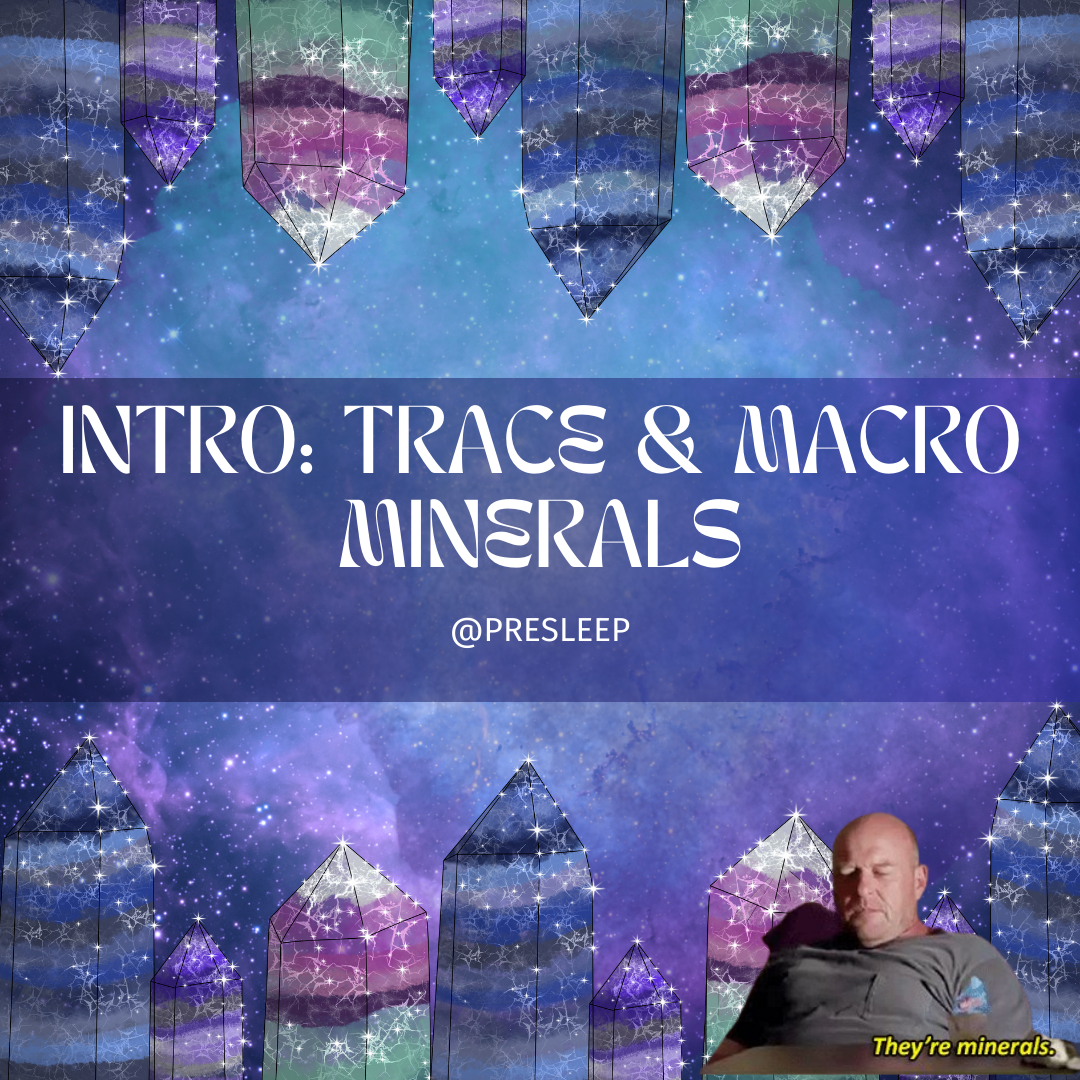Minerals are important for your body’s health.
To get minerals is to absorb them through diet. Minerals regulate your heart, muscles, bones, and brain to keep them healthy. They also play a key role in enzymes and hormones.
There are two types of minerals: trace and macro minerals. The only real difference between them is macro minerals must be consumed in higher amounts. Both typically come from food.
The body only needs a small amount of them but they are crucial for a healthy body. All minerals are considered toxic if consumed at high volumes for long periods.
Trace Minerals and Macro Minerals
Trace minerals and their impact on the body:
- Chromium - regulates blood sugar levels
- Copper - aids bone and cartilage formation
- Fluoride - assists in forming bones and teeth, and prevents tooth decay
- Iron - critical for making blood
- Manganese - reduces inflammation
- Molybdenum iodine - prevents toxins from building up
- Selenium - antioxidant helps prevent cell damage
- Zinc - helps enzymes make protein and heal wounds
Macro minerals and their impact on the body:
- Magnesium - critical for protein production, nerves, and immune system
- Sodium - fluid balance, nerve transmission, and muscle contraction
- Chloride - aids with fluid balance and stomach acid
- Potassium - helps nerve function and muscle contraction
- Calcium - important for healthy bones and teeth
- Phosphorus - plays a role in how fats and carbohydrates are used
- Sulfur - protects cells from damage and forming cancer
These trace minerals are influential for enzyme function systems and health. To get these through a diet it's important to get plenty of bread, cereals, leafy green vegetables, fruits, nuts, dairy, fish, and meat in your diet.
If you are a vegan, you may need to supplement some minerals that come from meat
What Minerals Help With Pre Sleep?
In terms of minerals, magnesium and zinc make the biggest difference in sleep hygiene.
In a sentence, zinc and magnesium regulate neurotransmitters and hormones involved in sleep and deep relaxation.
For a longer in depth explanation, read on.
How Do Zinc and Magnesium Help With Sleep?
Magnesium interacts with GABA transmitters in the brain, triggering a calming and relaxing effect in the nervous system.
The hypothalamic-pituitary-adrenal (HPA) is what regulates the body's response to stress. When we're stressed HPA is overactive, and our bodies react by elevating cortisol levels. Zinc lowers cortisol levels creating a soothing effect, preparing your body for sleep.
Think of the nervous system as a system of wires. When the wires get jumbled up, we get stressed. It’s difficult to sleep, we’re irritable and on edge.
When magnesium and zinc is consumed together it helps “reorganize” the wires, lowering stress and providing the body with a calming effect.
Zinc helps break the cycle of sleep induced stress while magnesium helps
In a nutshell, zinc and magnesium are taken together. It primes the body for deep restful sleep and prevents you from waking up.
What foods and drinks contain a lot of zinc?
The following food contains high zinc:
- Oysters
- Redmeat
- Seafood
- Breakfast cereals
- Beans
- Nuts
- Dairy
What Foods are High in Magnesium?
Foods high in magnesium are:
- Nuts
- Seeds
- Beans
- Lentils
- Soybeans
- Tofu
- Dark, leafy greens
- Whole grains
- Breakfast cereals
- Milk
- Yogurt
- Dark chocolate
How Much Magnesium Should I Take Pre Sleep?
When taking magnesium as a supplement, 400 mg is sufficient.
How Much Zinc Should I Take Pre Sleep?
When taking zinc as a supplement as an adult, 40 mg of zinc is the most someone should take per day.
Zinc consumption should be anywhere from 15mg to 40 mg for the average adult male.
PreSleep Minerals: Magnesium and Zinc
A healthy diet is the best way to absorb minerals. Magnesium and zinc are some of the biggest difference makers when it comes to using minerals for sleep hygiene.
PreSleep has both magnesium and zinc, along with other complementary amino acids to send you into a deep but refreshing sleep.
If you’re exercising, eating healthy and still not sleeping like a baby give PreSleep a shot!

